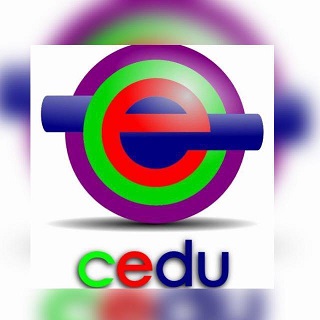THREE DIMENSIONS OF ACCESSIBILITY FOR EFFECTIVE EDUCATIONAL INCLUSION OF CHILDREN WITH DISABILITIES
Keywords:
School inclusion, Accessibility, Disabled childrenAbstract
The discourse on school accessibility for children with disabilities involves the observation that this institute is multidimensional and that the effectiveness of inclusion is associated with the observance of at least three of these dimensions: the architectural, communicational and attitudinal aspects. Thus, the general objective of this work will be to understand the approach on accessibility and educational inclusion of children with disabilities, considering the three dimensions already mentioned. From a discussion on the historical legislative development of special education and the development of the issue of disability through the evolution made by the terminology for people with disabilities, as well as the dimensions of accessibility, it was observed that without checking the aspect / architectural dimension, added to the communicational aspect / dimension and the attitudinal aspect / dimension, this is not an effective inclusion, but rather a mere rhetoric that brings these public policies closer to an integration and not an inclusion character.
Downloads
References
BRASIL. Lei n. 13.146, de 6 de julho de 2015. Institui a Lei Brasileira de Inclusão da Pessoa com Deficiência (Estatuto da Pessoa com Deficiência). Diário Oficial da União, Brasília, DF, 07 jul. 2015. Disponível em: http://www.planalto.gov.br/CCIVIL_03/_Ato2015-2018/2015/Lei/L13146.htm. Acesso em: 01 jun. 2020.
CARVALHO, Rosita Édler. Educação Inclusiva: Com os Pingos nos “is”. Porto Alegre: Mediação, 2004.
CAMERA, Maria Luiza Costa. Não se cria filho com as pernas. 10ª edição, Salvador: EGBA, 2004.
COMISSÃO NACIONAL DO ANO INTERNACIONAL DAS PESSOAS DEFICIENTES (CNAIPD). Relatório de Atividades, Brasil: 1981. Disponível em: http://www.dominiopublico.gov.br/download/texto/me002911.pdf Acesso em 16 dezembro 2020.
MANTOAN, Maria Tereza Egler. Compreendendo a deficiência mental: novos caminhos educacionais. São Paulo: Editora Scipione, 1988.
MAZZOTTA, Marcos José da Silveira. Educação especial no Brasil: história e políticas públicas. São Paulo: Cortez, 2003.
MEC – MINISTÉRIO DA EDUCAÇÃO. Conselho Nacional de Educação. Parecer CNE/CEB 17/2001. publicado no Diário Oficial da União de 17/8/2001, Seção 1, p. 46. Brasília. Disponível em: http://portal.mec.gov.br/seesp/arquivos/pdf/parecer17.pdf Acesso em 18 jan. 2021
INEP – Instituto Nacional de Estudos e Pesquisas Anísio Teixeira. Censo Escolar 2019. Disponível em https://agenciabrasil.ebc.com.br/educacao/noticia/2019-01/cresce-o-numero-de-estudantes-com-necessidades-especiais. Acesso em: 18 jan. 2021.
INEP – Instituto Nacional de Estudos e Pesquisas Anísio Teixeira. Censo Escolar 2019. Disponível em http://portal.mec.gov.br/setec-programas-e-acoes/acordo-gratuidade/33471-noticias/inep/85071-matriculas-em-creches-publicas-crescem-em-2019. Acesso: em 18 de jan.2021
SASSAKI, Romeu Kazumi. Terminologia sobre deficiência na era da inclusão. Revista Nacional de Reabilitação. São Paulo: ano 5 nº. 24, jan./fev. 2002. p.6-9.
SASSAKI, Romeu Kazumi. Como Chamar as pessoas que tem deficiência? Nucleo de Atendimento a Pessoas com Necessidades Específicas (NAPNE), São Paulo, 2005. Disponível em: https://napne.ifbaiano.edu.br/portal/?p=11. Acesso em 14 dez 2020.
SASSAKI, Romeu Kazumi. Inclusão – Construindo uma sociedade para todos. 7a. edição. Rio de Janeiro: WVA, 2006.
SASSAKI, Romeu Kazumi. As sete dimensões da acessibilidade, São Paulo: Lavratus Prodeo, 2020.
SILVA, Oto Marques da. A Epopéia Ignorada; A pessoa deficiente na História do mundo de ontem e de hoje. São Paulo: Cedas, 1987.
Published
How to Cite
Issue
Section
License
Copyright
The submission of originals to Cenas Educacionais (Educational Scenes - CEDU) implies the transfer, by the authors, of the publication rights. The copyright for the manuscripts published in this journal is the author(s), with CEDU rights over the first publication. Authors(s) may only use the same results in other publications by explicitly indicating CEDU as the means of the original publication.
Creative Commons License
Except where otherwise specified, the terms of a Creative Commons Attribution-ShareAlike 4.0 International License license apply to the material published in this journal, which allows unrestricted use, distribution and reproduction in any medium provided the original publication is correctly cited.






 This work is licensed with a License
This work is licensed with a License 